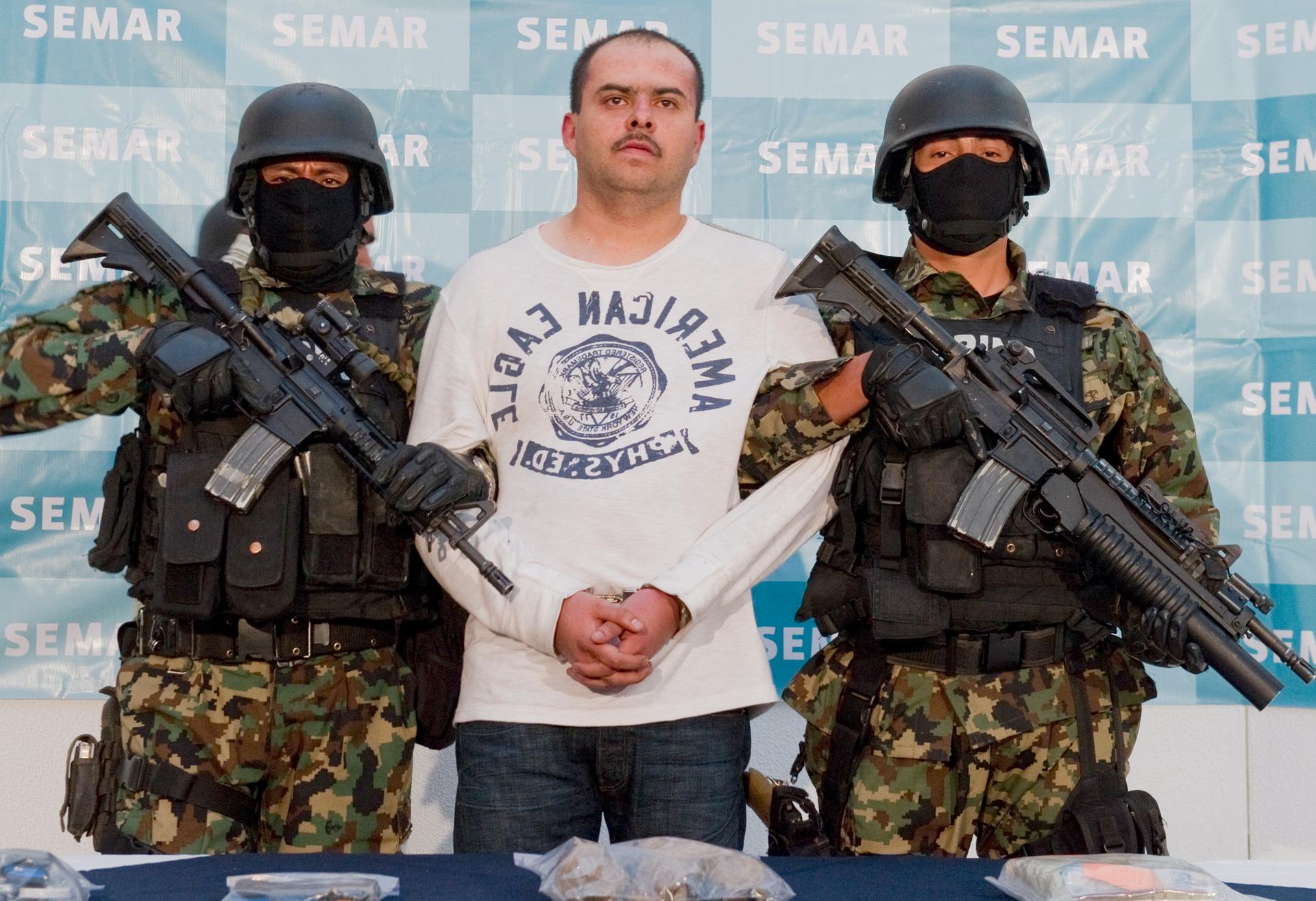Calderon says WikiLeaks caused “severe damage” to US-Mexico relations
Sergio Antonio Mora Cortes, of the Zetas drug cartel and boss of Julian Zapata Espinoza, accused of the murder of US Immigration and Customs Enforcement agent Jaime Zapata, is presented to the press at the Mexican Navy headquarters in Mexico City, on Feb. 28, 2011.
Mexican President Felipe Calderon said Thursday that WikiLeaks' release of State Department cables criticizing Mexico over its handling of the drug wars there had caused "severe damage" to its relationship with the United States.
Relations with the Obama administration were so tense that Calderon said he could no longer work with the U.S. ambassador in his country, according to The Washington Post.
Comments by Calderon published well ahead of his one-day visit to Washington on Thursday set the tone for scheduled talks with President Barack Obama.
In candid interview with Mexico's El Universal daily newspaper, he said the U.S. had not done its part to reduce arms trafficking and drug consumption and took aim at US diplomats in Mexico that, in cables, had called his security forces corrupt and uncoordinated, the Christian Science Monitor reported.
The American forces were the uncoordinated ones, he added, calling U.S. Ambassador to Mexico Carlos Pascual “ignorant.”
On Thursday, Calderon cited a U.S. cable that said that Mexican military officials had "risk-averse habits," suggesting that it had caused turmoil on his national security team.
"It's difficult if suddenly you are seeing the courage of the army [questioned]. For instance, they have lost probably 300 soldiers … and suddenly somebody in the American embassy, they [say] the Mexican soldiers aren't brave enough," Calderon said during an hour-long meeting with The Post editorial board and reporters. "Or you decide to play the game that they are not coordinated enough, and suddenly start to bring information to one agency and not to the other and try to get them to compete."
More than 35,000 people have been killed in rising drug-related violence in Mexico since December 2006, when President Felipe Calderon deployed soldiers and federal police to take on organized crime. But Calderon has said much of it is driven by American demand for drugs and supply of weapons.
Last month's shooting death of U.S. immigration and customs enforcement agent Jaime Zapata spurred U.S. criticism of Mexican law enforcement. Zapata was one of two U.S. Immigration and Customs Enforcement (ICE) agents ambushed by gunmen at a fake roadblock — known as a "narco-blockade" — in a part of the country that is increasingly under the influence of drug traffickers.
Homeland Security Secretary Janet Napolitano, said at the time that the fatal attack — the highest-profile since the 1985 torture and killing of DEA agent Enrique "Kiki" Camarena — would not change the U.S. commitment to supporting Mexico in its crackdown on organized crime.
Every day, reporters and producers at The World are hard at work bringing you human-centered news from across the globe. But we can’t do it without you. We need your support to ensure we can continue this work for another year.
Make a gift today, and you’ll help us unlock a matching gift of $67,000!
